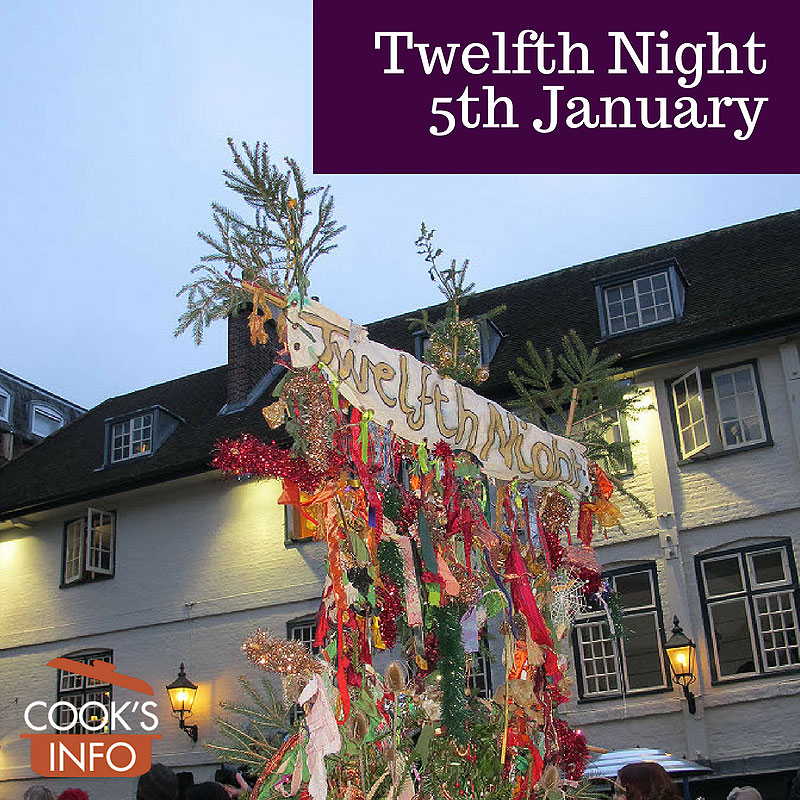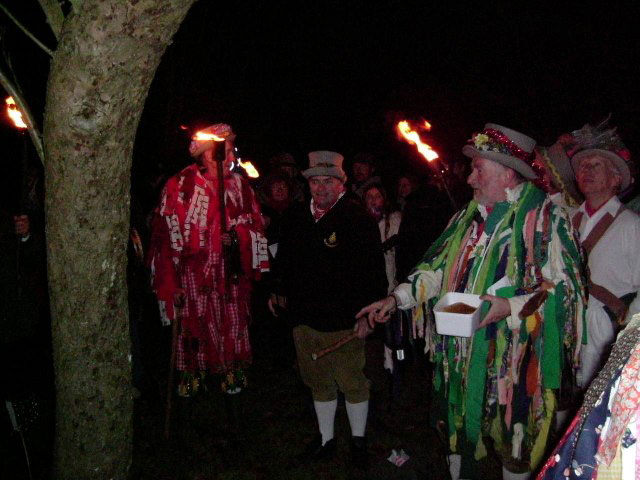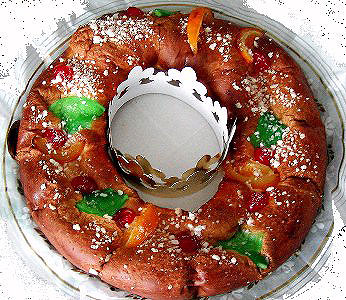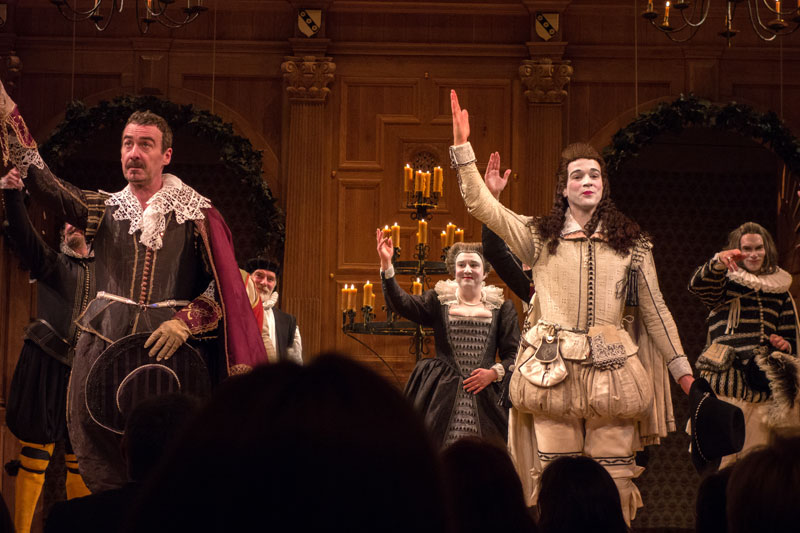
Stephen Crane / geograph.org.uk / 2013 / CC BY-SA 2.0
The evening of the 5th of January is Twelfth Night.
If Christmas seems to have an insane amount of activity rolled into one holiday, it’s because Twelfth Night has disappeared from calendars, with many of its traditions — plays, parties, cake, wassailing and presents — now rolled into Christmas.
Twelfth Night is the evening of the 5th of January. It’s the day on which Christmas decorations come down, and in many parts of the UK, the day to wassail your apple trees (you tromp out to the orchards in the mud, drink a toast of apple cider to the trees, and pour cider over their roots.)
Just as Christmas inherited the traditions of Twelfth Night, Twelfth Night, in turn, had acquired all the fun and role-reversals of the Roman Saturnalia (which was roughly the 17th of December.) The Romans had a tradition of placing a bean inside a cake at Saturnalia, and whoever found it became the master of ceremonies. This tradition was carried directly over into Twelfth Night.
Where does the twelve come from?
Traditionally, people thought of Christmas as being a twelve day festival.
The twelve days of Christmas began on what is now Boxing Day, the day after Christmas. They began after the more solemn religious observances of Christmas were over, and were the time for merry-making. Six of the days fell in the year that was ending; the other six fell in the year that was coming.
Most work would slow down or stop during this time, giving everyone a break.

Morris Men observing the West Country tradition of wassailing the apple trees on Twelfth Night to ensure a good harvest for next year’s cider. Maplehurst, West Sussex, England. Glyn Baker / geograph.org.uk / 2006 / CC BY-SA 2.0
Twelfth Night was the night before the twelfth day. It was the evening of the 11th day, the 5th of January. The actual twelfth day of Christmas is called Epiphany.
Twelfth Night used to be a great deal of fun. Parties would be held, practical jokes played, and there would be feasting, singing, charades and dancing.
A Twelfth Night Cake was an integral part of the evening.

A Twelfth Night cake made in Catalonia, Spain. Perique des Palottes / wikimedia / 2003 / public domain
Shakespeare’s play, Twelfth Night, takes place on Twelfth Night. It is a romantic comedy about role reversals, deceptions and comedic disorder appropriate for the tone of the holiday. It has been re-imagined by every generation since it was debuted in 1602.
See also: Galette des rois
#TwelfthNight

Ralph Daily. Twelfth Night. Belasco Theater, New York / 22 Dec 2013 / Flickr / CC BY 2.0

